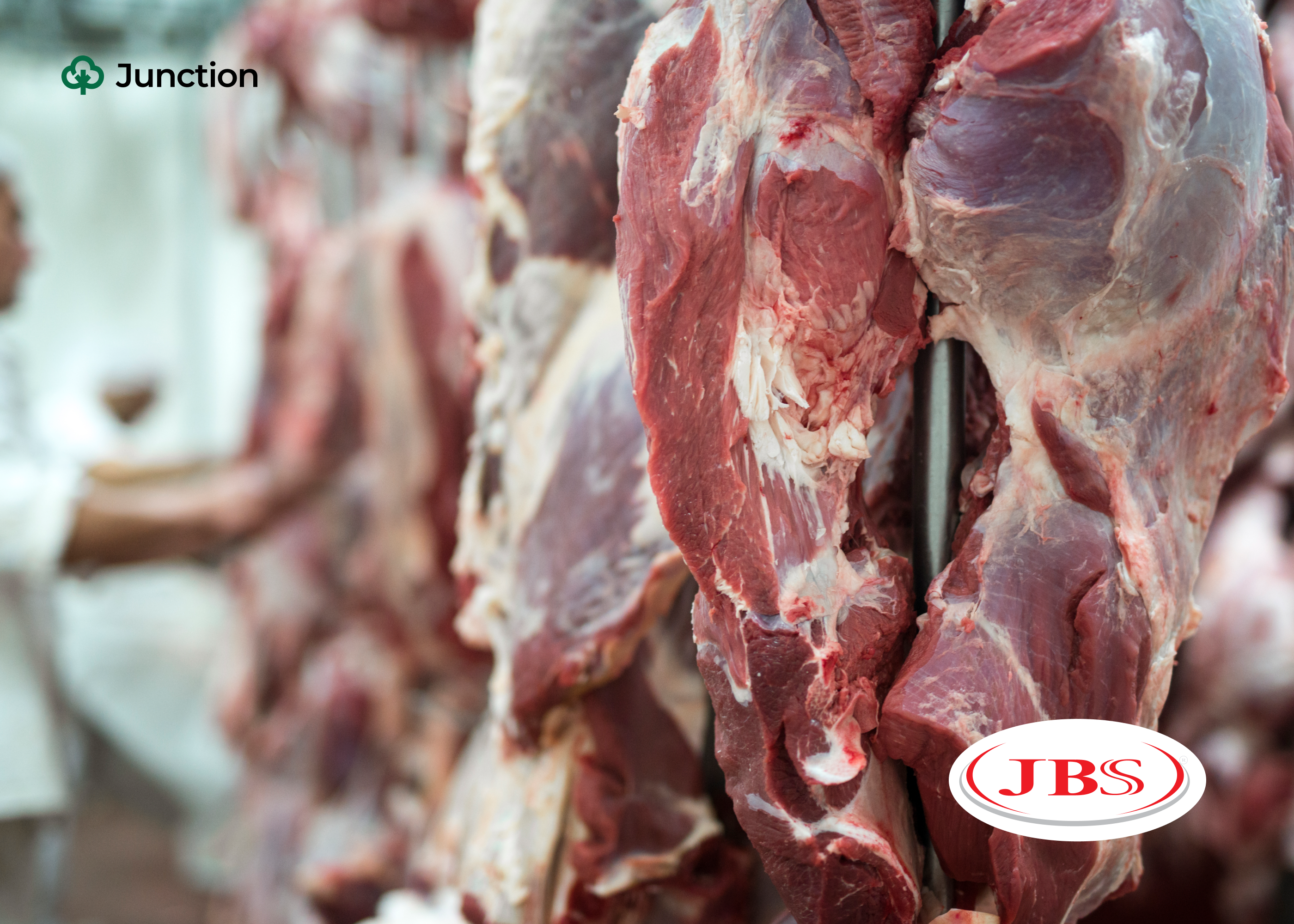News in Brief:
– Nigeria’s partnership with JBS aims to modernise the livestock sector through significant investment and technological advancements.
– Analysts express cautious optimism due to challenges like insecurity, infrastructure limitations, and potential implementation hurdles.
The partnership between the Nigerian government and Brazilian meat processing giant JBS continues to generate significant debate, with analysts highlighting its potential to revolutionise the nation’s livestock sector.
Its projected outcomes—employment generation, food security, and revenue growth—underscore its potential significance.
The proposed initiative, centered on a $2.5 billion investment and the development of a 100,000-hectare cattle ranch in Niger State, has been framed as a cornerstone of the government’s agricultural modernisation strategy.
However, questions remain about the practical implementation and the ability to overcome longstanding challenges.
Navigating existing hurdles
Nigeria’s livestock sector faces formidable challenges such as persistent insecurity and herder-farmer conflicts, outdated farming practices, inadequate infrastructure, and low productivity.
Therefore, the effectiveness of the JBS partnership in addressing these issues will be crucial in determining its success.
“The promise of this partnership is substantial, but its realisation hinges on effectively tackling the existing structural problems within the sector. Simply injecting capital without addressing the root causes of insecurity and inefficiency might yield limited results,” Dr Aisha Bello, an agricultural economist, explained.
The government also mentioned that the partnership will introduce modern ranching practices, technology transfer, infrastructure development, and genetic improvements.
However, skeptics argue that these measures may not be sufficient to overcome deeply entrenched issues.
Adding to the nuanced perspective, industry analyst and livestock development expert, Dr Wallace Ogunde, expresses cautious optimism.
“Steps have been taken on the part of the government, and it shows that they mean business,” Ogunde commented. “They also have the right people in place, so credibility is assured. State governments are keying into the partnership. We should not be talking about ‘audio projects’ at this stage, 2025. So far, with what is going on, it shows promise.”
However, he raised some critical concerns about nepotism in government contracts and appointments.
“The company might face extra costs, which could lead to higher product prices unless covered by charity. The same situation applies unless the company develops its own energy system. For now, there’s not much to be excited about,” he said.
Potential vs. reality: weighing the outcomes
Proponents of the partnership highlight its potential to create thousands of jobs, boost local production, and reduce reliance on imports. They argue that JBS’s expertise and resources will modernise the sector and drive economic growth.
“If implemented effectively, this partnership could be a game-changer for Nigeria’s livestock industry,” says industry analyst Adekunle Ogunleye. “The potential for job creation and increased food security is undeniable. However, the devil is in the details, and successful execution will be paramount.”
The focus on developing modern processing facilities and cold chain infrastructure is seen as a positive step towards improving storage and distribution, potentially reducing post-harvest losses.
The path to sustainable growth
There are concerns that large-scale industrial farming may push smaller producers out of the market, as they may struggle to compete with JBS’s superior resources, economies of scale, and potential government backing.
Additionally, if the focus shifts primarily to commercial production, smallholder farmers might face challenges accessing grazing land, markets, and funding. While the deal presents opportunities for growth and modernisation, ensuring that local producers benefit, rather than being sidelined, will be another a crucial factor in its success.
The long-term success of the Nigeria-JBS partnership will equally depend on the government’s ability to provide a stable and supportive environment, the Brazillian company’s commitment to technology transfer and local capacity building, and the active participation of local stakeholders.
“This partnership represents a significant opportunity for Nigeria to transform its livestock sector,” concludes Dr Bello. “It is crucial to approach it with a realistic perspective, recognising the challenges and ensuring that the benefits are distributed equitably.”
While the potential for significant economic and social impact exists, the partnership’s success will ultimately be measured by its ability to deliver tangible improvements in the lives of Nigerian farmers and consumers and the overall stability of the nation’s food supply.



